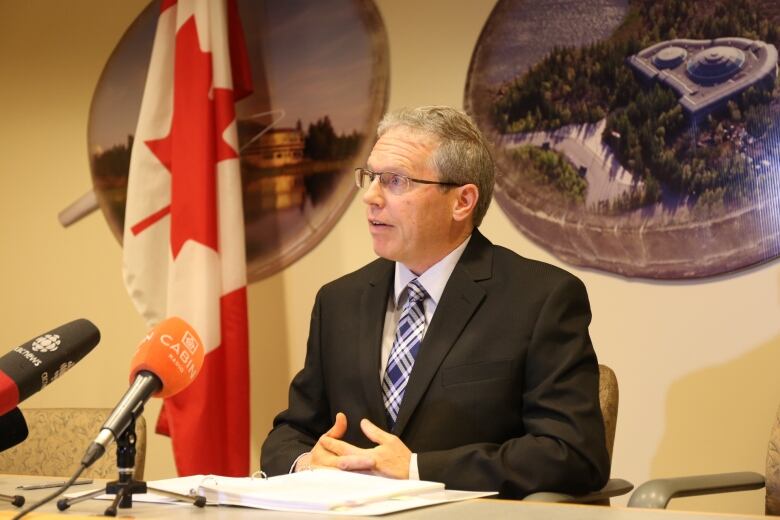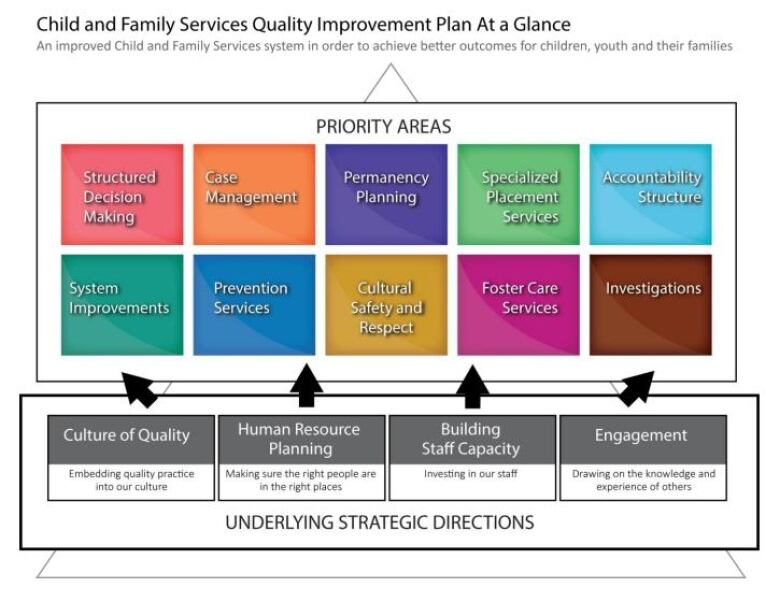N.W.T. Child and Family Services reports offer few details on improvements for kids in care
New data collection system makes it harder to evaluate statistics on individual children, says report

In a press release dropped just days before N.W.T. government workers take a week-long mandatory leave with pay, the Department of Child and Family Services lauded their own progress on making improvements to the territory's beleaguered child welfare system.
The department claims it has completed "approximately 33 per cent" of its self-imposed, three-year action plancreated in the wake of a scathing 2018 auditor general's report.
But its annual report, released one week prior, shows the moveto a new data collection system has made it harder than ever to evaluate statistics on children in care.
In the fall of 2017, the departmentstarted using MatrixNT. In thisdatasystem, information about the status of children is collected by household, rather than bychild, making it harder to track individual children through the system.
"This has brought challenges related to measuring individual child-level service statuses," reads the report. "Therefore, some data is not comparable to previous years."
No updates to audit's findings
Neither the annual report nor progress updates issued by the department contain updated statistics for the most critical findings from theOffice of the Auditor General's2018 report. Thatreport led to an unsuccessful motion of non-confidence in then-health minister Glen Abernethy.
The report found that authorities did not maintain the required regular contact with nine out of 10 children placed in foster care. It also foundtwo out of three guardians were not adequately screened including, in one case, where a guardian waslater charged with assaulting the child in their care.
Children placed in care facilities outside of the territory were also not regularly monitored and, in one case highlighted in the report, a child went missing for a week.

The audit also showed the department was struggling to implement policy changes imposed in the wake of a previous audit four years earlier, including wholesale changes to reporting and assessment requirements.
Instead of updated statistics, the department's recent progress updates highlight renewed efforts to improve standards, including the development of new protocols for evaluating potential guardians and out-of-territory care.
To ensure those protocols are in use, the department is implementing a regular "quality review" regimenintended to provide "real-time information to improve compliance."
In addition to an ongoing system-wide audit and regular frontline reporting requirements, these reviews will collect data, in some cases monthly, on whether frontline workers are meetingminimum reporting requirements.
While a progress update from August says the department has completed an "initial caseload analysis," there is no updated information on critical levels of vacanciesor improvements to the assessment and reporting workload that employees called "overwhelming."
In fact, while that update lauds the addition of 21 new positions,a chart in the annual report issued this month indicates the number of child protection workers and their supervisors has increased by only one, to 79 from 78.
It is not clear from the report how the task of performingnew quality reviews will be assigned to managers, who in some cases are carrying heavy caseloads themselves.

More than 1 in 10 casesinvestigated for mistreatment
What is made clear in the annualreport is the scale of the child welfaresystem in the territory.
Over the course of the year, 1,328 children from a total population of just over 11,000 were subject to an investigation related to a report of child mistreatment, mostly relating to neglect, exposure to family violence, or emotional abuse.
The Tcho region continued to lead in the percentage of children receiving care. One in four children in the territory's child welfaresystem live in theregion, despite the region accounting for only 10 per cent of the territory's child population.
The report also shows adoptions dropping dramatically just 23 total adoption orders were granted in 2018-19, compared to a 10-year average of 50 per year.
Overall, the number of children in the territory's custody or permanent care is decreasing, with more and more children under supervision in family homes.
"Although the report identifies many accomplishments, we know that there is still more work that needs to be done," reads a statement attributed to Health Minister Diane Thom. "The safety and well-being of children and youth is our top priority."












_(720p).jpg)


 OFFICIAL HD MUSIC VIDEO.jpg)
.jpg)



























































































